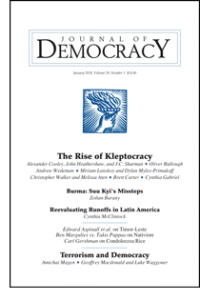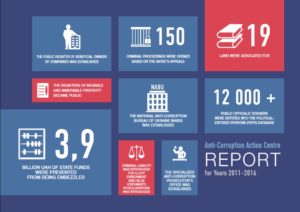 Russia is run by people who are stealing left, right, and center. Its a kleptocracy, says Mark Galeotti, author of The Vory: Russia’s Super Mafia, out Tuesday from Yale University Press.
Russia is run by people who are stealing left, right, and center. Its a kleptocracy, says Mark Galeotti, author of The Vory: Russia’s Super Mafia, out Tuesday from Yale University Press.
“They’re not doing it in usual mob ways, like shaking people down on the street corner. They’re doing it through government contracts and corrupt sweetheart deals. There’s a considerable overlap between how the gangsters operate and how the elite operate. The boundaries between the two are pretty permeable,” he tells VICE News:
It’s a problem because Russia is a serious player in world politics and global economics. The trouble is that Russian kleptocracy and the close ties between the Kremlin, business, and organized crime means that Russia can infect other countries with its own practices. Putin is engaged in this kind of political war with the West—he’s effectively trying to weaponize Russian organized crime against the west.
 Western aid programs designed to attack corruption in Ukraine are failing. Instead of acknowledging the significant degree to which Ukraine has changed for the better, Western-backed approaches misrepresent ongoing reforms as woefully inadequate, say analysts Adrian Karatnycky and Alexander J. Motyl. In so doing, they discredit the reforms, polarizing the country’s elites, promoting mass mobilization, encouraging left- and right-wing populism, weakening Ukraine at a time of war and Russian occupation, and contributing to the country’s instability.
Western aid programs designed to attack corruption in Ukraine are failing. Instead of acknowledging the significant degree to which Ukraine has changed for the better, Western-backed approaches misrepresent ongoing reforms as woefully inadequate, say analysts Adrian Karatnycky and Alexander J. Motyl. In so doing, they discredit the reforms, polarizing the country’s elites, promoting mass mobilization, encouraging left- and right-wing populism, weakening Ukraine at a time of war and Russian occupation, and contributing to the country’s instability.
Western policy should focus on building on the impressive institutional changes that Ukraine has already adopted and further reducing the structural incentives for corruption. To this end, the West should pursue five policies, they write for Foreign Affairs:
- First, Western anticorruption policy should focus on the reduction of the scope for rent seeking and other corrupt schemes rather than on wide-ranging punishment for those engaged in them. Such a new policy focus could include the creation of truly independent licensing bodies, regulatory agencies, and tariff-setting entities. To this end, remaining state holdings should be privatized, as should Ukraine’s vast agricultural lands.
 Second, reformers should introduce competition to the entrenched business elite through de-monopolization.
Second, reformers should introduce competition to the entrenched business elite through de-monopolization.
- Third, Western bodies should renew and repair cooperation with Ukraine’s main law enforcement and justice institutions by committing to improve their professional capacity and internal continuing education.
- Fourth, Western governments should show neutrality in their relations with Ukraine’s various state institutions and promote the monitoring of all criminal justice institutions, including those that Western policy has helped birth.
- Finally, grant providers should strictly warn their grantees that engagement in political projects and movements requires their withdrawal or recusal from administrative, executive, and supervisory roles in Western-funded NGOs. These approaches are likely to win support within segments of the oligarchic elite, part of which seeks to legitimate and make transparent its businesses.







